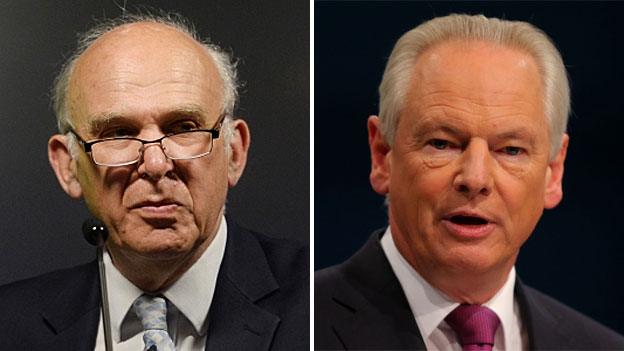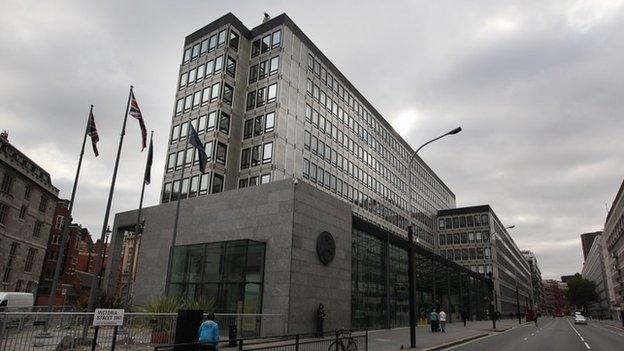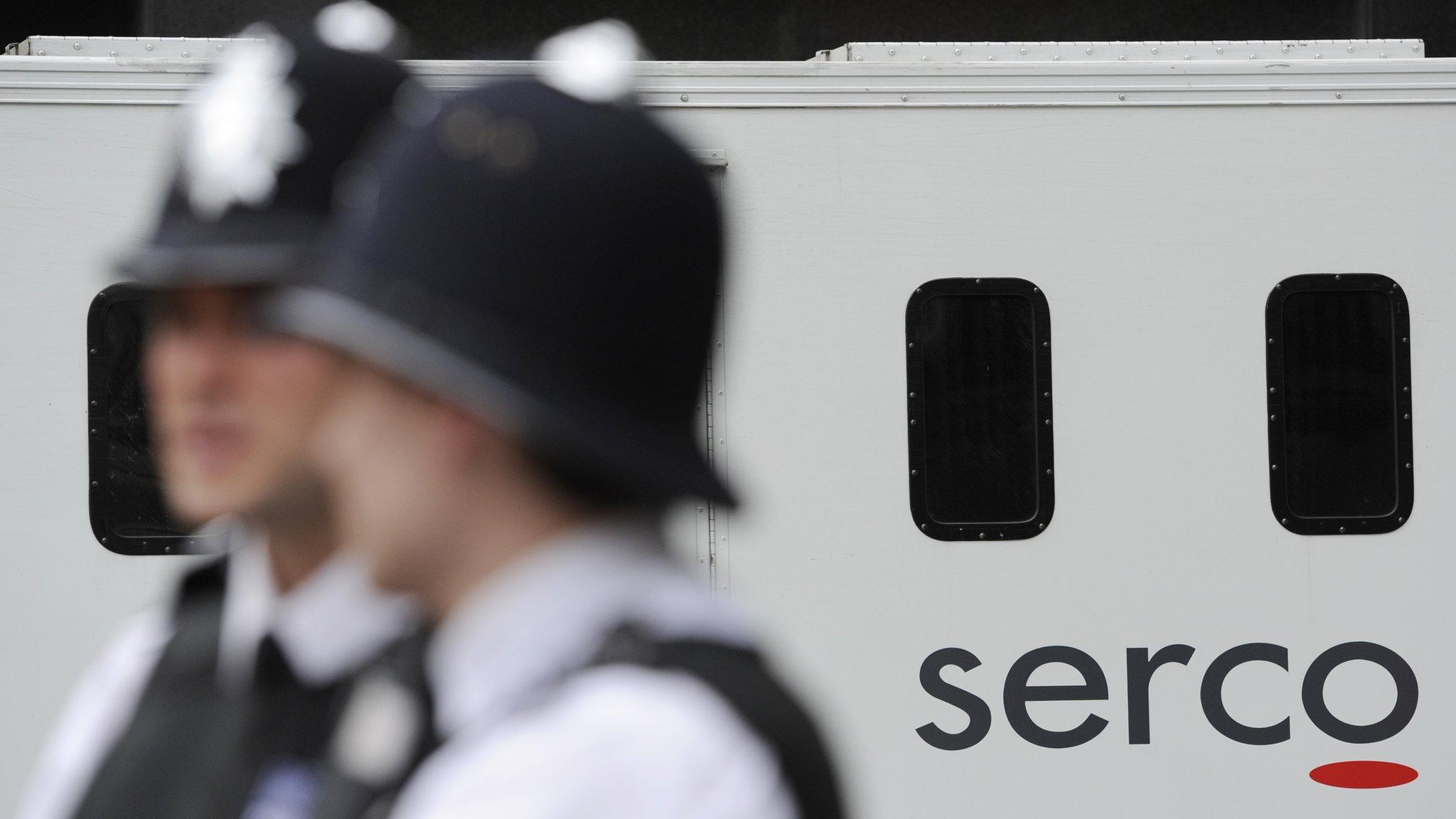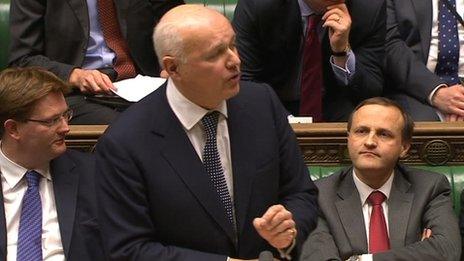Coalition bust-up over Whitehall IT overhaul
- Published

A coalition row has erupted after Lib Dem minister Vince Cable criticised the Tories' flagship IT policy, claiming it had nearly paralysed his department.
Vince Cable and Ed Davey complained to David Cameron at a recent Cabinet meeting over slow emails and other IT problems at their departments.
The two ministers blamed Conservative Cabinet Office Minister Francis Maude's IT procurement policy.
The Cabinet Office has said the ministers' own officials were to blame.
Business Secretary Mr Cable and Energy and Climate Change Secretary Mr Davey were reported in the Financial Times, external to be angry about slow and intermittent emails and network problems at their departments since they started migrating to new systems in May.
The problems, which included data loss, lost emails and frozen screens, are said to have nearly brought their two departments to a standstill.
'Messed up'
The departments share an IT system, which was previously provided by Japanese computer giant Fujitsu under a 15-year PFI deal worth £19m a year.
Under new Whitehall procurement procedures, they are using several different suppliers on shorter contracts.

The business department is suffering IT problems
Francis Maude is attempting to end the dominance of IT giants at Whitehall - and hand a bigger share of contracts to small and medium sized companies (SMEs).
The business and climate change departments were the first to implement the new initiative - one of the Conservative Party's flagship policies to boost small business.
Mr Cable is calling for it to be halted until lessons can be learned about what went wrong.
But Cabinet Office sources suggested the energy and business departments had "messed up" the procurement of the new contracts and were trying to shift the blame to Mr Maude's team.
'Outdated contracts'
A Conservative government source told BBC News: "It is rather strange that the secretary of state for business seems to be against small business."
Mr Maude's officials have pointed out that the new IT system at the two departments is not, in fact, being solely provided by small companies and some of the contractors are large IT companies.
They say officials are taking time to get used to new ways of working, with several contractors handling IT instead of one big supplier. They also point out that the new IT contracts at the two departments are 40% cheaper.
A Cabinet Office spokesman said: "Civil servants need modern technology to do their jobs so we are replacing the expensive, inflexible and outdated contracts which we inherited in 2010.
"Our government IT reforms are saving taxpayers' money and ensuring SMEs can compete alongside bigger providers.
"Departments remain responsible for their own technology and services."
A spokesman for the business department said they were "working hard" to resolve the IT problems and "minimise disruption" and "much progress has now been made".
"BIS and DECC were the first government departments to implement the Cabinet Office's new ICT strategy and lessons learned will help other departments when they renew their IT in the future," the spokesman added.
- Published14 March 2014

- Published24 January 2014

- Published8 January 2014
